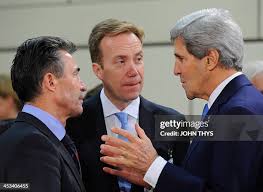
Introduction
John Kerry, the former U.S. Secretary of State, plays a pivotal role in shaping global climate policy as the Special Presidential Envoy for Climate. Appointed by President Joe Biden, Kerry’s mission is to re-establish the United States as a leader in international climate diplomacy. This role comes at a critical juncture when climate change is increasingly recognised as a pressing global issue requiring immediate and collective action.
Current Efforts and Initiatives
Since taking office, Kerry has been instrumental in galvanising international cooperation on climate subjects. He represented the United States at the 2021 United Nations Climate Change Conference (COP26) in Glasgow, where he sought to inspire other nations to commit to ambitious climate goals. Under his leadership, the U.S. pledged to reduce greenhouse gas emissions by 50-52% by 2030, compared to 2005 levels. This commitment aims to align the nation with the global goal of limiting global warming to 1.5 degrees Celsius.
Kerry has also worked vigorously to engage with developing nations, acknowledging that they often bear the brunt of climate-induced disasters despite contributing less to the problem. His efforts include promoting financial aid packages to support renewable energy initiatives and resilience-building in these vulnerable countries. The recent funding announcements from the U.S. aim to provide assistance amounting to $6 billion to support clean energy transitions in developing economies.
Challenges and Opposition
Despite these initiatives, Kerry faces significant challenges, including political opposition from within the U.S. As midterm elections approach, the prevailing political climate may affect bipartisan support for ambitious climate legislation. Additionally, global events, such as geopolitical tensions, have the potential to divert attention and resources away from necessary climate actions.
Conclusion
As global attention on climate change intensifies, John Kerry’s commitment and influence in climate diplomacy remains crucial. His efforts to bolster international partnerships and financial support for climate initiatives could set the foundation for meaningful progress. However, successfully overcoming political and logistical hurdles will be essential. As a result, Kerry’s role not only influences current policies but also shapes future generations’ environment and economy. The next few years could very well define the trajectory of global climate action, making Kerry’s work increasingly significant.
You may also like

Understanding the Current Political Landscape in the UK

The UKIP Party: Recent Developments and Future Outlook

Boris Johnson: A Look at His Current Political Landscape
SEARCH
LAST NEWS
- Remembering Wendy Richard: The Promise to Co-Star Natalie Cassidy
- How Did Anglian Water Achieve an ‘Essentials’ Rating for Mental Health Accessibility?
- Shai Hope Leads West Indies in T20 World Cup Clash Against South Africa
- What We Know About Weston McKennie: Future at Juventus and Past at Leeds
- What We Know About the Upcoming Live Nation Antitrust Trial